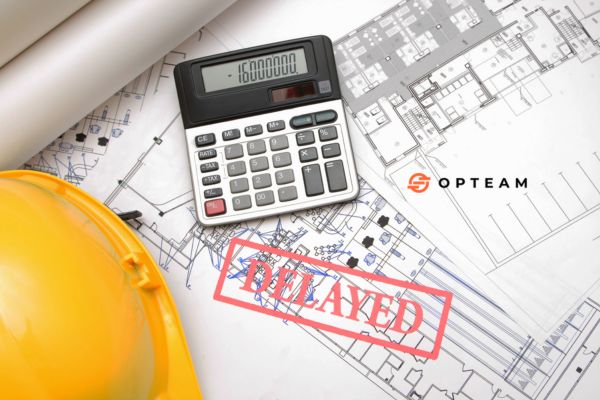A Construction Delay Claim is a formal assertion made by a party involved in a construction project, typically the contractor or subcontractor, seeking compensation or an extension of time due to delays that have impacted the project schedule.
These claims arise when unforeseen events or circumstances cause delays, resulting in increased costs or time extensions beyond what was initially agreed upon in the contract.
Construction Delay Claims are crucial because they address the financial and scheduling impacts of unforeseen events on a construction project. These claims allow contractors to seek compensation for additional costs incurred due to delays that are beyond their control, such as unexpected site conditions, severe weather, or changes in project scope by the owner.
By formally documenting and asserting these claims, contractors can recover expenses related to extended overhead, labor, and equipment costs, thus mitigating the financial risks associated with project delays.
Additionally, delay claims often provide the basis for requesting extensions to project deadlines, helping to protect contractors from penalties or liquidated damages for late project completion.
Types of Construction Delays Claims
Excusable vs. Inexcusable Delays
Excusable delays are those that occur due to unforeseeable and uncontrollable events, entitling the contractor to a time extension and, in some cases, additional compensation. Here are some examples:
- Adverse Weather Conditions: Severe weather events such as hurricanes, tornadoes, heavy snowfall, or flooding that make it impossible to continue work on the project.
- Natural Disasters: Earthquakes, landslides, or other catastrophic events that disrupt the project site and halt construction activities.
- Unforeseen Site Conditions: Unexpected discovery of hazardous materials, underground utilities, or archaeological finds that require special handling and delay progress.
- Government Actions: New regulations, permit delays, or changes in zoning laws that impact the construction schedule.
- Owner-Initiated Changes: Significant alterations to the project scope or design by the project owner that necessitate additional time for completion.
- Strikes or Labor Disputes: Work stoppages due to strikes or labor disputes that are beyond the contractor’s control.
On the other hand, inexcusable delays are caused by factors within the contractor’s control and do not entitle them to any relief or compensation. Here are some examples:
- Poor Project Management: Inefficient scheduling, inadequate planning, or lack of coordination that results in project delays.
- Insufficient Manpower: Failure to allocate enough workers to the project, leading to slower progress and missed deadlines.
- Delayed Material Deliveries: Late ordering or poor logistics management causing delays in the arrival of necessary materials and equipment.
- Subcontractor Failures: Issues arising from the contractor’s chosen subcontractors, such as lack of performance, which were preventable through better vetting and management.
- Equipment Breakdown: Failure to maintain or adequately prepare construction equipment, resulting in breakdowns and delays.
- Financial Mismanagement: Inadequate budgeting or financial planning leading to cash flow issues that stall the project.
Compensable vs. Non-compensable Delays
Compensable delays are those for which the contractor is entitled to both a time extension and additional compensation. These delays typically occur due to actions or inactions by the project owner or other parties that affect the project’s timeline and cost. Examples of compensable delays include:
- Owner-Initiated Changes: Significant alterations to the project scope or design by the owner that require additional work and time.
- Owner Interference: Delays caused by the owner’s late delivery of materials or equipment necessary for the project.
- Site Access Issues: Delays resulting from the owner’s failure to provide timely access to the construction site.
- Payment Delays: Delays in payments from the owner, which affect the contractor’s cash flow and ability to continue work.
- Design Errors: Errors or omissions in the project design provided by the owner or their representatives that require corrections and additional time.
- Permitting Issues: Delays due to the owner’s failure to secure necessary permits on time.
Non-compensable delays are those for which the contractor is not entitled to additional compensation. These delays may still warrant a time extension but do not result in financial reimbursement. Examples of non-compensable delays include:
- Force Majeure Events: Severe weather events, natural disasters, and other uncontrollable events that disrupt the project but are beyond anyone’s control.
- Unforeseen Site Conditions: Unexpected discovery of hazardous materials, underground utilities, or other site conditions that require special handling.
- Labor Strikes: Work stoppages due to strikes or labor disputes that are beyond the contractor’s control.
- Contractor Management Issues: Delays caused by the contractor’s inefficient scheduling, poor project management, or inadequate resource allocation.
- Subcontractor Failures: Problems arising from subcontractors chosen by the contractor, such as poor performance, which could have been prevented with better vetting or management.
- Equipment Problems: Delays due to the contractor’s failure to maintain or adequately prepare construction equipment, leading to breakdowns.
- Financial Issues: Inadequate budgeting or financial planning by the contractor that leads to cash flow problems and project delays.
Legal Implications of Delay Claims
Contractor’s Legal Rights
Contractors have the legal right to seek compensation and time extensions for delays that impact their ability to complete a project as initially agreed. These rights are often detailed in the construction contract, specifying the conditions under which delay claims can be made. Contractors can file claims for compensable delays caused by the owner’s actions or inactions, such as changes to project scope, late delivery of materials, or site access issues. Proper documentation and timely notification are essential for contractors to exercise these rights effectively and protect their interests.
Owner’s Legal Rights
Owners also have legal rights concerning construction delay claims, primarily focusing on ensuring the project is completed on time and within budget. They have the right to reject delay claims that lack sufficient documentation or are due to the contractor’s negligence or poor project management. Owners can also impose penalties or liquidated damages for non-excusable delays caused by the contractor. Moreover, owners may require detailed schedules and progress reports to monitor the project’s timeline and address potential delays proactively.
Common Legal Disputes and Resolutions
Common legal disputes in construction delay claims often revolve around the determination of responsibility for the delays, the adequacy of documentation, and the calculation of damages. Disputes may arise over whether a delay is excusable or compensable, the extent of the impact on the project schedule, and the resulting financial costs. These disputes can be resolved through various means such as negotiation, mediation, arbitration, or litigation. Effective communication, thorough documentation, and clear contract terms are crucial in minimizing disputes and facilitating fair resolutions.
Strategies to Mitigate Construction Delays
Implementing Critical Path Method (CPM) Scheduling
Implementing Critical Path Method (CPM) scheduling is a crucial strategy for mitigating construction delays. CPM involves mapping out all project activities, identifying the longest sequence of critical tasks that must be completed on time for the project to finish by its deadline.
By focusing on these critical tasks, project managers can allocate resources more effectively, monitor progress closely, and identify potential bottlenecks early. CPM helps in predicting delays and allows for proactive adjustments to keep the project on track.
Effective Communication and Coordination
Effective communication and coordination among all stakeholders are vital to prevent construction delays. Establishing clear lines of communication ensures that all parties are aware of project updates, changes, and potential issues. Regular meetings, progress reports, and collaborative tools facilitate transparency and timely information sharing. When all team members, from contractors to subcontractors to owners, are well-informed and working together seamlessly, it reduces misunderstandings and delays caused by miscommunication.
Risk Management Techniques
Risk management techniques are essential in identifying, assessing, and mitigating potential risks that could lead to construction delays. This involves conducting thorough risk assessments at the project’s outset to anticipate challenges and develop contingency plans. Regular monitoring and updating of the risk management plan allow for quick responses to emerging issues. Techniques such as risk transfer, avoidance, and mitigation strategies help minimize the impact of unforeseen events, ensuring that delays are managed effectively.
How Opteam.ai Can Help
Opteam.ai, an AI-powered construction planning and scheduling software, can significantly aid in mitigating construction delays. The software leverages advanced algorithms and machine learning to optimize project schedules, predict potential delays, and recommend corrective actions. With features like real-time data analysis, automated schedule updates, and intelligent resource allocation, Opteam.ai enhances project efficiency and accuracy. By providing detailed insights and proactive solutions, it helps project managers stay ahead of potential issues and maintain project timelines.
Conclusion
Construction delay claims are a critical aspect of managing construction projects, helping to address the financial and scheduling impacts of unforeseen events. Differentiating between excusable and inexcusable delays, as well as compensable and non-compensable delays, is essential for both contractors and owners to understand their rights and obligations. Effective strategies to mitigate construction delays include implementing Critical Path Method (CPM) scheduling, fostering effective communication and coordination, and employing robust risk management techniques.
Additionally, leveraging advanced tools like Opteam.ai can provide significant advantages in planning, scheduling, and proactive delay management.
Future trends in construction delay management are likely to be shaped by advancements in technology and data analytics. The increasing adoption of AI and machine learning tools, such as Opteam.ai, will enhance predictive capabilities and allow for more precise scheduling and resource allocation. The use of Building Information Modeling (BIM) will improve project visualization and coordination, reducing the risk of delays caused by design and construction conflicts. Additionally, the integration of IoT devices on construction sites will provide real-time data, enabling more responsive and dynamic project management. These technological advancements, combined with a continued focus on collaborative approaches and comprehensive risk management, will transform how construction delays are managed, leading to more efficient and timely project completions.
Read more:






